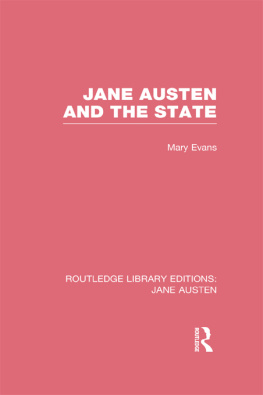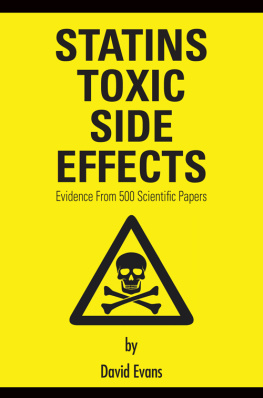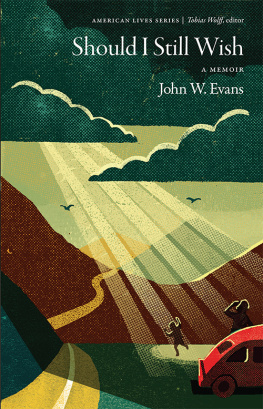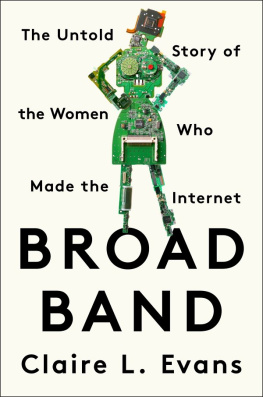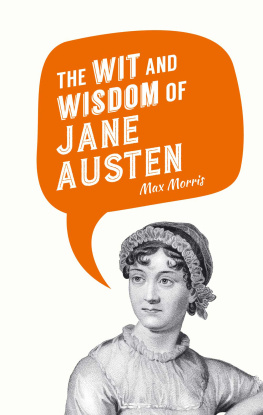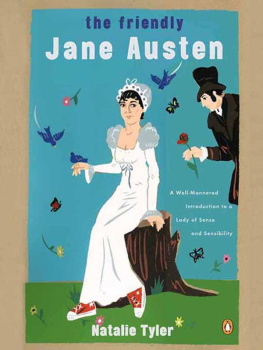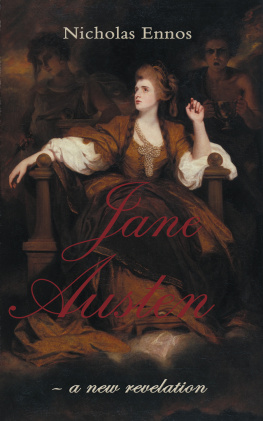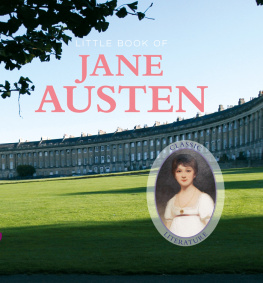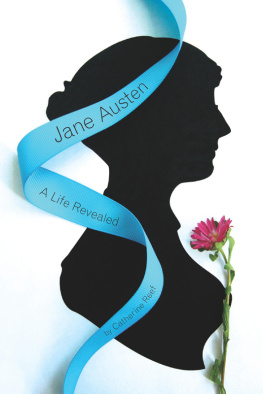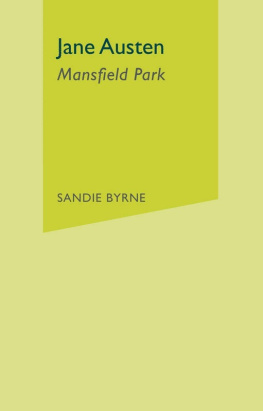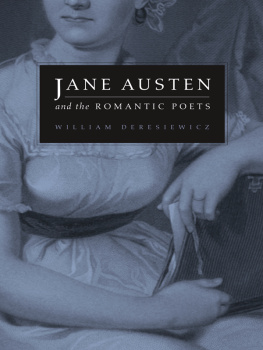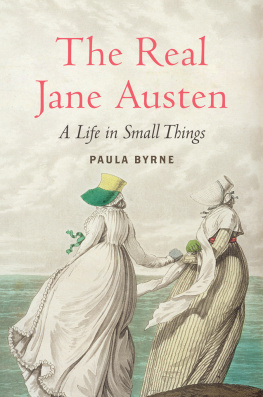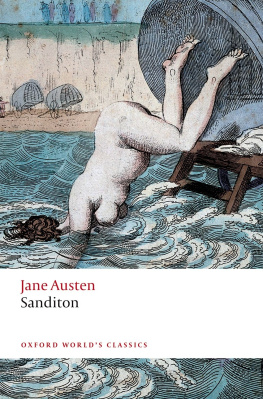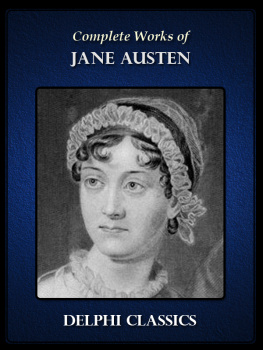Evans - Jane Austen and the State (Rle Jane Austen)
Here you can read online Evans - Jane Austen and the State (Rle Jane Austen) full text of the book (entire story) in english for free. Download pdf and epub, get meaning, cover and reviews about this ebook. year: 2012, publisher: Routledge, genre: Politics. Description of the work, (preface) as well as reviews are available. Best literature library LitArk.com created for fans of good reading and offers a wide selection of genres:
Romance novel
Science fiction
Adventure
Detective
Science
History
Home and family
Prose
Art
Politics
Computer
Non-fiction
Religion
Business
Children
Humor
Choose a favorite category and find really read worthwhile books. Enjoy immersion in the world of imagination, feel the emotions of the characters or learn something new for yourself, make an fascinating discovery.
Jane Austen and the State (Rle Jane Austen): summary, description and annotation
We offer to read an annotation, description, summary or preface (depends on what the author of the book "Jane Austen and the State (Rle Jane Austen)" wrote himself). If you haven't found the necessary information about the book — write in the comments, we will try to find it.
Evans: author's other books
Who wrote Jane Austen and the State (Rle Jane Austen)? Find out the surname, the name of the author of the book and a list of all author's works by series.
Jane Austen and the State (Rle Jane Austen) — read online for free the complete book (whole text) full work
Below is the text of the book, divided by pages. System saving the place of the last page read, allows you to conveniently read the book "Jane Austen and the State (Rle Jane Austen)" online for free, without having to search again every time where you left off. Put a bookmark, and you can go to the page where you finished reading at any time.
Font size:
Interval:
Bookmark:

ROUTLEDGE LIBRARY EDITIONS:
JANE AUSTEN
JANE AUSTEN AND THE STATE
JANE AUSTEN AND THE STATE
MARY EVANS
Volume 2

First published in 1987
This edition first published in 2011
by Routledge
2 Park Square, Milton Park, Abingdon, Oxon OX14 4RN
Simultaneously published in the USA and Canada
by Routledge
711 Third Avenue, New York, NY 10017
Routledge is an imprint of the Taylor & Francis Group,
an informa business
1987 Mary Evans
All rights reserved. No part of this book may be reprinted or reproduced or utilised in any form or by any electronic, mechanical, or other means, now known or hereafter invented, including photocopying and recording, or in any information storage or retrieval system, without permission in writing from the publishers.
Trademark notice: Product or corporate names may be trademarks or registered trademarks, and are used only for identification and explanation without intent to infringe.
British Library Cataloguing in Publication Data
A catalogue record for this book is available from the British Library.
ISBN: 978-0-415-67313-6 (Set)
eISBN: 978-0-203-81039-2 (Set)
ISBN: 978-0-415-67253-5 (Volume 2)
eISBN: 978-0-203-81316-4 (Volume 2)
Publishers Note
The publisher has gone to great lengths to ensure the quality of this reprint but points out that some imperfections in the original copies may be apparent.
Disclaimer
The publisher has made every effort to trace copyright holders and would welcome correspondence from those they have been unable to trace.
To David, Thomas, and James Alexander
Contents
Acknowledgements
This essay was written partly in the United States whilst I was a guest of Martha and James Davis at John Winthrop House, Harvard University. I would like to thank both Martha and Jim for their hospitality and many kindnesses. Mrs Sue Macdonald typed the manuscript with great good humour and accuracy and Gill Davies provided valuable editorial support and assistance. I discussed many of the ideas in the essay with David Morgan and I would like to thank him for his enthusiastic and perceptive contributions to these discussions.
Introduction
In Jane Austens last novel, Persuasion, the heroine remarks that literature is a poor guide to human behaviour and that books cannot prove anything. The conversation in which the remark occurs concerns the question of the greater or lesser capacity for emotional commitment of men and women; one of the characters attempts to demonstrate his case by reference to literature and is immediately told, by a strong authorial voice, that literature is no guide to life. What was true for England in the early nineteenth century is just as true today: Jane Austens novels are not themselves factual accounts of life as it was lived but brilliant discussions of the issue of personal behaviour within the context of capitalist social relations.
That issue remains consistently pertinent in England in the 1980s, at a point in our history where it would appear that the increased impoverishment of a large section of the population, particularly the female population, is due in large part to the deliberate policies of a democratically elected government. Jane Austen would probably find it difficult to fault the formal procedure which brought to power a government officially committed to monetarism and the curtailment of the states responsibilities for welfare provision; but she might have questioned the policies themselves, and their underlying assumptions.
This is not to suggest that Jane Austen belongs in any sense to a tradition of the Left or indeed any other formal contemporary political grouping but it does mean that the ) Unlike some Victorian novelists Jane Austen does not argue that women are helpless victims; on the contrary she maintains that they are active makers of their fate. But what she does show is the vulnerability of women in the economic market-place, a vulnerability that leads to the paradox of both their inadequate protection (in the sense of real provision for their needs and those of their children) and their excessive restriction (in terms of their inferior civil liberties and assumptions about female dependence).
In demonstrating, in each of her novels, the potential harshness of the market economy, Jane Austen establishes herself as a major figure in European realism. We can read her novels as novels of manners, as light entertainment about a vanished world, but to do so is to ignore the central concern of the author not for manners, but for morality and for the establishment of a morality that can survive in a world which is increasingly hostile to all interests other than the purely economic. As Jane Austen recognized, the bourgeois world is particularly skilful at presenting economic self-interest as morality (freedom, for example, can often be translated as the right to unregulated entrepreneurial activity) and one of the reiterated themes of her novels is the misnaming by some of her characters of actions that they know to be guided by simple self-interest. Her morality, therefore, is not consoling but is one of absolute principle and absolute honesty: a morality which demands that characters should behave in ways which they would often rather avoid or dismiss.
But against what may appear as harsh and unbending judgements we have to allow that Jane Austens ideal world is one in which individuals would be assured of the mutual but the implications of her ideas about proper moral behaviour are general. Unlike later novelists Jane Austen does not set out blueprints for society which translate the individual into the passive instrument of social ideals; on the contrary she argues that individuals, and communities of individuals, make society what it is. People, Jane Austen might have remarked, make their own history. As she might also have said, they do so against both a personal and a social history, but it is a complete abdication of all personal and moral responsibility to argue that people cannot make choices, or that they are entirely made by circumstances. To adopt this position, as Jane Austen recognized, is merely to adopt the dominant values of the age: values in the eighteenth as much as in the twentieth century of materialism and individual self-interest. The seductive power of these values, for individuals and governments, was acknowledged by Jane Austen as considerable. But what she also acknowledged was the human capacity for commitment to others, for the disinterested care and comfort of the vulnerable, and for resistance to those social pressures which elevated the process of material accumulation to the ideological status of absolute human and moral reality.


The world of Jane Austen
The association of Jane Austen and the state at first appears an unlikely one. Of all English novelists, Austen is generally assumed to be the most resistant to attempts by feminists, marxists, and sociologically minded literary critics to establish relationships between a literary work and a particular social formation. Whilst Austens near contemporaries, such as the Brontes and George Eliot, can be plundered successfully for information about the 1832 Reform Act, industrial unrest in the early days of the British factory system, or the conditions of work of Victorian governesses, Austen remains aloof from attempts to cull from her pages specific facts about social life and existent or emergent ideologies. As numerous critics have pointed out, we can search in vain in Austen for discussion of the great contextual events of her lifetime: the French Revolution and the Napoleonic Wars are virtually absent. What we find instead are those neat ladies and gentlemen (as Charlotte Bronte described them) who perambulate endlessly on well-cut lawns, involved in endless conversational games designed to ensure that the more eligible single people marry each other. Indeed, in some circles an admiration for Jane Austens work could be interpreted as identification with the views of Lord David Cecil and other Tory Janeites: a nostalgia for a golden age of the English gentry when elegant manners dictated and organized a coherent and ordered social world. To such enthusiasts Mrs Norris is merely comic and the rescue from penury by marriage of Fanny Price and Jane Fairfax accords with romantic notions that deserving women should be recognized, courted, and married by good and honourable men.
Next pageFont size:
Interval:
Bookmark:
Similar books «Jane Austen and the State (Rle Jane Austen)»
Look at similar books to Jane Austen and the State (Rle Jane Austen). We have selected literature similar in name and meaning in the hope of providing readers with more options to find new, interesting, not yet read works.
Discussion, reviews of the book Jane Austen and the State (Rle Jane Austen) and just readers' own opinions. Leave your comments, write what you think about the work, its meaning or the main characters. Specify what exactly you liked and what you didn't like, and why you think so.

